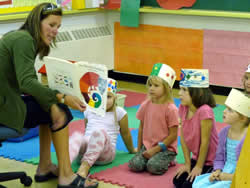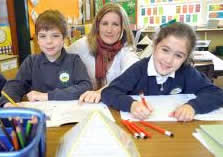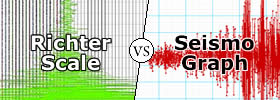Difference between Kindergarten and Primary School
Key Difference: Kindergarten denotes a type of preschool that focuses on the children from three to five years of age. A primary school is an elementary school which is meant for the children below the age of eleven. However, in some countries kindergarten and primary school are used synonymously to denote a school for children with five to six years of age.
 Kindergarten usually refers to a school program that focuses on young children and prepares them for the 1st grade of a primary school. The name ‘kindergarten’ was given by the German Friedrich Frobel, who created the first institution like this in Germany in the year 1837. It usually denotes the first year of compulsory schooling which focuses on the children with age equivalent to five years.
Kindergarten usually refers to a school program that focuses on young children and prepares them for the 1st grade of a primary school. The name ‘kindergarten’ was given by the German Friedrich Frobel, who created the first institution like this in Germany in the year 1837. It usually denotes the first year of compulsory schooling which focuses on the children with age equivalent to five years.
These institutions are custom-made to suit children of this particular age. In countries where kindergarten is meant for the children up to five years of age, any six year old child is eligible to take admission in the first grade of a school. In order to cater to the multi-dimensional growth of the children, kindergarten offers a variety of activities. In some of the places, it is a half day program, and in other places, it is offered as a full day program.
 Primary school denotes an elementary school which includes the first three or four grades of a school. It usually covers the children between the ages of five and eleven. It lays a strong foundation of school education which is further extended in secondary education.
Primary school denotes an elementary school which includes the first three or four grades of a school. It usually covers the children between the ages of five and eleven. It lays a strong foundation of school education which is further extended in secondary education.
The subjects in primary school generally include mathematics, social studies, physical education, health, etc. A lot of emphasis is laid to improve the reading ability of a child. It usually covers the grades/classes from first to sixth. In most of the countries, primary education is compulsory for children. Primary school students also learn good studying habits including:
- To manage time efficiently
- To organize necessary tools and materials
- To plan for assignments of varied lengths
- To prepare for the tests
Comparison between Kindergarten and Primary School:
|
|
Kindergarten |
Primary School |
|
Definition |
Kindergarten denotes a type of preschool that focuses on the children from three to five years of age. |
Primary school denotes an elementary school which includes the first three or four grades of a school. |
|
Origin |
From German Kindergarten, literally "children's garden" |
from Latin primarius "of the first rank, chief, principal, excellent" |
|
Type of classes |
Generally, half day |
Full day |
|
Subjects |
Generally includes Reading and Language Arts, Basics of Math, Social Studies, Science, Health, Physical Education, Art, Music, Environmental Education. |
Generally includes Maths, Science, Design and Technology, History, Geography, Art and Design, Music, Physical Education (PE) and Information and Communication Technology. |
|
Benefits |
|
|
|
Singapore |
Kindergarten programmes are generally scheduled for three to four hours daily, five days a week. |
Refers to 6 years compulsory of primary education, from ages 7 to 12. |
|
U.S.A. |
The child must be 5 years of age by a specific date/month, which is decided by the school. |
Primary school usually refers to kindergarten (ages five to six) or first grade (ages 6 and 7) to fourth grade (ages 9 to 10), fifth (ages 10 to 11), or sixth grade (ages 11 to 12). |
|
U.K. |
The term kindergarten is rarely used in Britain to describe pre-school education. |
They generally cater for children aged from four to eleven. |
Image Courtesy: cleveland.ac.uk, randsco.com









Comments
Barbara Valdez
Thu, 03/23/2017 - 07:29
Add new comment